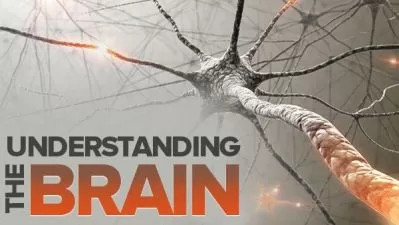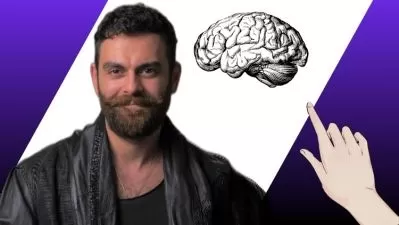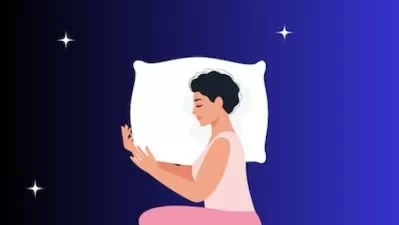Secrets of Sleep Science: From Dreams to Disorders
H. Craig Heller
12:19:03
Description
For many of us, sleep is one of life's greatest pleasures. For others, sleep represents a nightly struggle to fall asleep, stay asleep, rest comfortably, and even remain safe until morning. But what is sleep exactly, and why must we do it every night?
Despite the fact that we spend about one-third of our lives in slumber, scientists still aren't completely certain. Finding the function of sleep is one of the biggest—and most intriguing—challenges facing biologists today.
What is clear: Sleep is as essential to life as food and water. It impacts virtually every aspect of our lives, from our mood to the functioning of our organs, and it contributes to learning and memory, better performance at work, and a more healthy and productive wakeful life overall.
A lack of sleep impairs your cognitive abilities, exacerbates or leads to psychological problems, and leaves you vulnerable to a long list of chronic medical issues. And the consequences of too little sleep extend beyond the personal. From causing auto accidents to factoring into major disasters such as the Exxon Valdez oil spill, sleep deprivation imposes a heavy toll on society.
Clearly, there's tremendous value in studying sleep that goes far beyond mere fascination. Educating yourself on the subject may, without exaggeration, save your life or the life of someone you love. The frightening reality is that dire consequences can develop after only a few days of inadequate sleep.
Secrets of Sleep Science: From Dreams to Disorders is your opportunity to access groundbreaking research on the complex and enigmatic phenomenon of sleep, straight from a scientist at the forefront of the field. In these 24 engrossing lectures, award-winning Stanford University professor and researcher H. Craig Heller reveals how far neuroscientists and biologists have come on their quest to pinpoint the principal functions of sleep—which remain a matter of intense debate.
Understand Why Sleep Debts Must Be Paid
Early on in this course, you'll learn that your brain forces you to fall asleep to repay an accumulated sleep deficit—no matter how dangerous the circumstances. You'll also learn the myriad ways sleep loss is associated with increased risk for serious health problems such as
- obesity,
- diabetes,
- depression, and
- reduced resistance to infectious disease.
Backed by compelling scientific evidence, Professor Heller illuminates what happens in the sleeping brain all the way down to the cellular and molecular level. You'll investigate what biological changes may be produced by wakefulness and reversed during sleep, in addition to
- the catastrophic ways our circadian clocks can fail;
- coping mechanisms for jet lag, shift work, and insomnia;
- disorders such as sleep apnea, narcolepsy, and restless leg syndrome;
- parasomnias such as sleepwalking, night terrors, and sleep-related eating disorder; and
- how proper “sleep hygiene” can help you improve your own quality of sleep.
You'll also examine the critical role sleep plays in our capacity to form memories, and you'll encounter astounding animal research that ranges from studies of aquatic mammals that sleep with half of their brains at a time to the deep sleep of hibernation in squirrels and bears.
Discover the Architecture of Sleep
Widespread interest in sleep goes back to ancient times, yet the study of sleep is relatively new. In fact, the first insights into the physiology of sleep didn't occur until 1929, when the electroencephalograph was developed to monitor patterns of electrical activity in the brain.
As Professor Heller explains, these EEG recordings allowed scientists to identify REM (rapid eye movement) and non-REM states that are the defining features of sleep. You'll explore both REM and non-REM sleep in depth, including how they cycle throughout the night.
- Non-REM sleep EEG recordings show a high-amplitude, slow-wave pattern indicating that large populations of neurons are firing in synchrony.
- REM sleep, frequently called “dreaming sleep,” creates a low-amplitude, fast pattern similar to a waking EEG.
Then, using basic concepts of electricity, you'll look at the cellular and molecular mechanisms of falling asleep, the many discrete brain structures involved in the control of sleep and wakefulness, and the homeostatic regulation that matches sleep intensity to need.
You'll trace how your all-important circadian rhythms emerge shortly after birth but continue to change over the course of your lifetime, and you'll get an introduction to the neuroanatomy and neurochemistry of sleep, including how medications and other factors influence sleep.
Secrets of Sleep Science also features a thought-provoking lecture on the physiology of what may be the least-understood aspect of sleep: dreaming. Taking into consideration the Freudian and Jungian theories on the topic as well as the latest research, you'll sift through
- the possible functions of dreams;
- the notion that dreams hold meaning;
- anecdotal evidence suggesting dreams inspire creativity;
- why you only sometimes remember your dreams; and
- why dream amnesia may be crucial to maintaining mental health.
Why Sleep Goes Awry
From sleepy sickness to the rare fatal familial insomnia, sleep pathologies and disorders are among the most fascinating—and often heartbreaking—topics you'll cover in Secrets of Sleep Science. You may find the information on identifying and treating sleep apnea of particular value, as you or your partner may snore and repeatedly struggle to breathe during sleep without even realizing it.
Professor Heller also offers simple behavioral methods to conquer bouts of insomnia and outlines possible treatments for post-traumatic stress disorder, which frequently involves incessant, extreme nightmares that feel all too real.
In the latter half of the course, you'll get the opportunity to learn about the professor's own research, which suggests a promising link between sleep-related systems and the cognitive impairment associated with Down syndrome.
A Remarkable Learning Experience
Professor Heller's first-hand experiments, astute analysis, and obvious passion for the study of sleep make him the ideal guide for this riveting subject. Not only does he elucidate the most up-to-date findings and ideas this field has to offer, but, as a researcher and veteran educator, he possesses the experience and authority to offer his own expert interpretations.
Both seasoned students of biology and those with a casual appreciation for science will find Secrets of Sleep Science filled with astonishing insights. If you've ever wondered why we say “sleep like a baby”; why adolescents find it so hard to get up for school; or why your grandfather dozes in his chair during the day but complains of being unable to sleep at night; this is the course for you.
More details
User Reviews
Rating
H. Craig Heller
Instructor's Courses
The Great Courses
View courses The Great Courses- language english
- Training sessions 24
- duration 12:19:03
- English subtitles has
- Release Date 2023/06/06




























